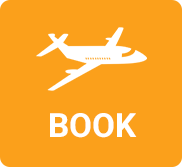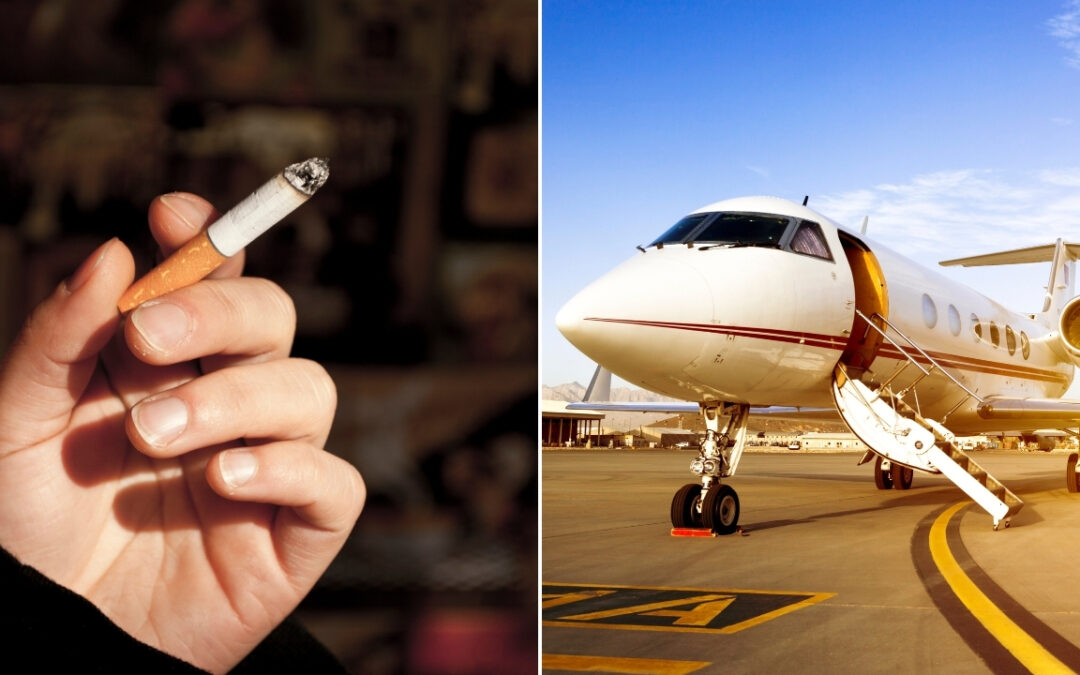Summary: Yes—but only on select aircraft jets. While smoking has been banned on all commercial airlines since the 1990s, Charter Jet One can arrange smoking-approved private jets upon request. Availability depends on the aircraft owner, operator, and international aviation regulations. Travelers should be prepared for additional costs such as cleaning fees or higher charter rates. Charter Jet One ensures clients know their options, matching them with the right jet for a seamless and personalized experience.
Key Takeaways
- Can you smoke on a private jet? Yes, but only on select aircraft and with operator approval.
- Commercial airlines strictly ban smoking, with penalties for violations, while private aviation offers limited exceptions.
- Extra costs apply, including cleaning fees and possible surcharges when smoking is allowed.
- The best private jets for smokers include Gulfstream G650, Falcon 7X, and Global 7500, depending on operator policy.
- Charter Jet One provides tailored options, helping clients find aircraft that match their preferences, including smoking policies.
Private aviation has long been synonymous with luxury, privacy, and tailored experiences far beyond what commercial airlines can provide. But when it comes to smoking — a practice banned on airlines for decades — many travelers wonder: can you smoke on a private jet in 2025?
The answer depends on the aircraft, operator, and your destination, but yes, smoking is still permitted in certain circumstances. This article breaks down the rules, costs, and best jet options for those who want to enjoy this rare privilege.
Smoking on Commercial Airlines vs Private Jets
Smoking on commercial airlines is strictly prohibited. If you light up on a commercial flight today, you could face federal penalties, arrest, and fines up to $4,000 per violation.
Tampering with smoke detectors can bring even harsher consequences. That’s why the “smoking is prohibited on this flight” announcement remains standard across all airlines worldwide.
Private jets, however, operate under different rules. Smoking is not universally banned; instead, it’s left to the discretion of the aircraft owner and operator.
Some of our aircraft in the fleet allow smoking, though strict cleaning protocols and additional fees apply.
When Was Smoking Banned on Airplanes?
Understanding why private jets are the exception helps one look at history. Smoking bans on commercial aircraft were phased in over time:
- 1988: U.S. bans smoking on domestic flights under 2 hours.
- 1990: Ban extended to all domestic flights under 6 hours.
- 2000: Complete ban on all U.S. flights, including international routes.
Secondhand smoke risks, fire hazards, and aircraft air quality concerns drove the bans. Today, smoking on airlines is not only prohibited but also seen as a safety violation.
So why is it illegal to smoke on a plane? Sealed cabins, limited filtration, and potential fire hazards make it too dangerous for mass travel.
Private jets typically carry only a few passengers, have advanced ventilation, and are customized to the owner’s preferences. That’s why some jets still allow smoking today.
Can You Smoke on a Private Jet? Rules & Operator Policies
So, can you smoke on a private jet in 2025? The answer is: sometimes. Here’s what determines whether you can:
- FAA & EASA Rules: Neither outright bans smoking on private jets. Instead, regulations focus on safety systems like smoke detectors and fire suppression.
- Operator Policies: Charter companies — including Charter Jet One — decide whether smoking is permitted. Some aircraft are designated smoking-friendly, while others are strictly non-smoking.
- Owner’s Preference: The owner’s rules apply if an aircraft is privately owned and chartered.
- Interior Concerns: Smoking can stain upholstery, damage air systems, and lower aircraft resale value, making many owners reluctant to allow it.
In short, smoking is possible, but it’s a privilege granted on select aircraft, not a blanket right.
Costs & Considerations of Smoking on Private Jets
Even if smoking is allowed, there are extra costs to consider:
- Cleaning Fees: Smoke odors cling to fabrics and require deep cleaning.
- Interior Damage: Stains, burns, or long-term smoke exposure can damage leather and wood finishes.
- Maintenance: Smoke particulates affect air filters and ventilation systems, requiring more frequent replacement.
For this reason, Charter Jet One often applies higher charter costs or cleaning surcharges when smoking occurs onboard.
For transparent pricing, speak to an agent or learn more about jet card pricing.
The Best Private Jets for Luxury Travel (and Smoking Policies)
When discussing the best private jet experience, luxury and customization take center stage. While not all aircraft allow smoking, some jets are better suited for those who want the option:
- Gulfstream G650: Known for its advanced filtration system and ultra-long range. Select G650s allow smoking.
- Dassault Falcon 7X: This vehicle is often preferred by VIPs, celebrities, and executives. Depending on the operator, smoking is sometimes permitted.
- Bombardier Global 7500: Offers large cabins with customizable interiors, with some operators allowing smoking.
Whether you prioritize air quality, range, or luxury design, Charter Jet One can match you with the right aircraft.
Explore our luxury private jet interiors or discover premium onboard private jet catering.
FAQs About Smoking on Private Jets
Can you smoke cigars on a private jet?
Yes, but only on designated smoking-friendly jets. Cigars tend to leave more pungent odors, so expect higher cleaning fees.
Can you vape on a jet?
Vaping is treated similarly to smoking. Some operators allow it, but restrictions vary, especially internationally.
Are there international restrictions on smoking on an aircraft?
Yes. Some countries ban smoking on all flights (private or commercial). Always confirm with Charter Jet One before your trip.
What happens if you smoke on a plane that prohibits it?
On commercial flights, you’ll face fines and potential arrest. On a private jet, violating the no-smoking rule could mean termination of the charter, steep cleaning fees, and being blacklisted from future flights.


 CALL DIRECT
CALL DIRECT CALL TOLL FREE
CALL TOLL FREE
